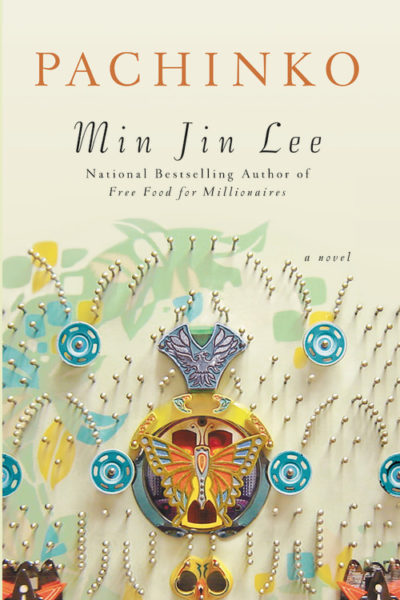 Min Jin Lee’s second novel Pachinko follows several generations of a Korean family living under Japanese colonialism. In the 1930s in a small town in colonial Korea, a young woman named Sunja is abandoned by her wealthy lover, but saved by a young minister who marries her and takes her to Japan. If there can be said to be a central character it is Sunja, though Lee weaves such an intricate tale as to make it hard to pick from the many family members–her two sons, Noa and Mozasu, her sister-in-law Kyunghee, her grandson, Solomon (the opening pages begin briefly with Sunja’s grandparents, to give you a sense of scope).
Min Jin Lee’s second novel Pachinko follows several generations of a Korean family living under Japanese colonialism. In the 1930s in a small town in colonial Korea, a young woman named Sunja is abandoned by her wealthy lover, but saved by a young minister who marries her and takes her to Japan. If there can be said to be a central character it is Sunja, though Lee weaves such an intricate tale as to make it hard to pick from the many family members–her two sons, Noa and Mozasu, her sister-in-law Kyunghee, her grandson, Solomon (the opening pages begin briefly with Sunja’s grandparents, to give you a sense of scope).
The book comes in at a weighty 485 pages, but I found myself compelled to enter further and further. Delicately drawing out a story about love, loss, identity, and otherness, Lee draws a picture of the travails of being other in a colonial nation, the limitations and possibilities. As their fortunes rise and fall, rise and fall, we seamlessly move through time, exploring a breadth of human nature and resilience.
So while not a page-turner of the traditional sort, it is nonetheless enthralling, elegantly revealing layer after layer of possibilities with enormous empathy for this family. And Lee provides a window into a little-discussed population–the Koreans living in Japan in the twentieth-century–that is at once unfamiliar and familiar (see also, this recent New York Times opinion piece on the value of books). Pachinko is well-worth the journey.








